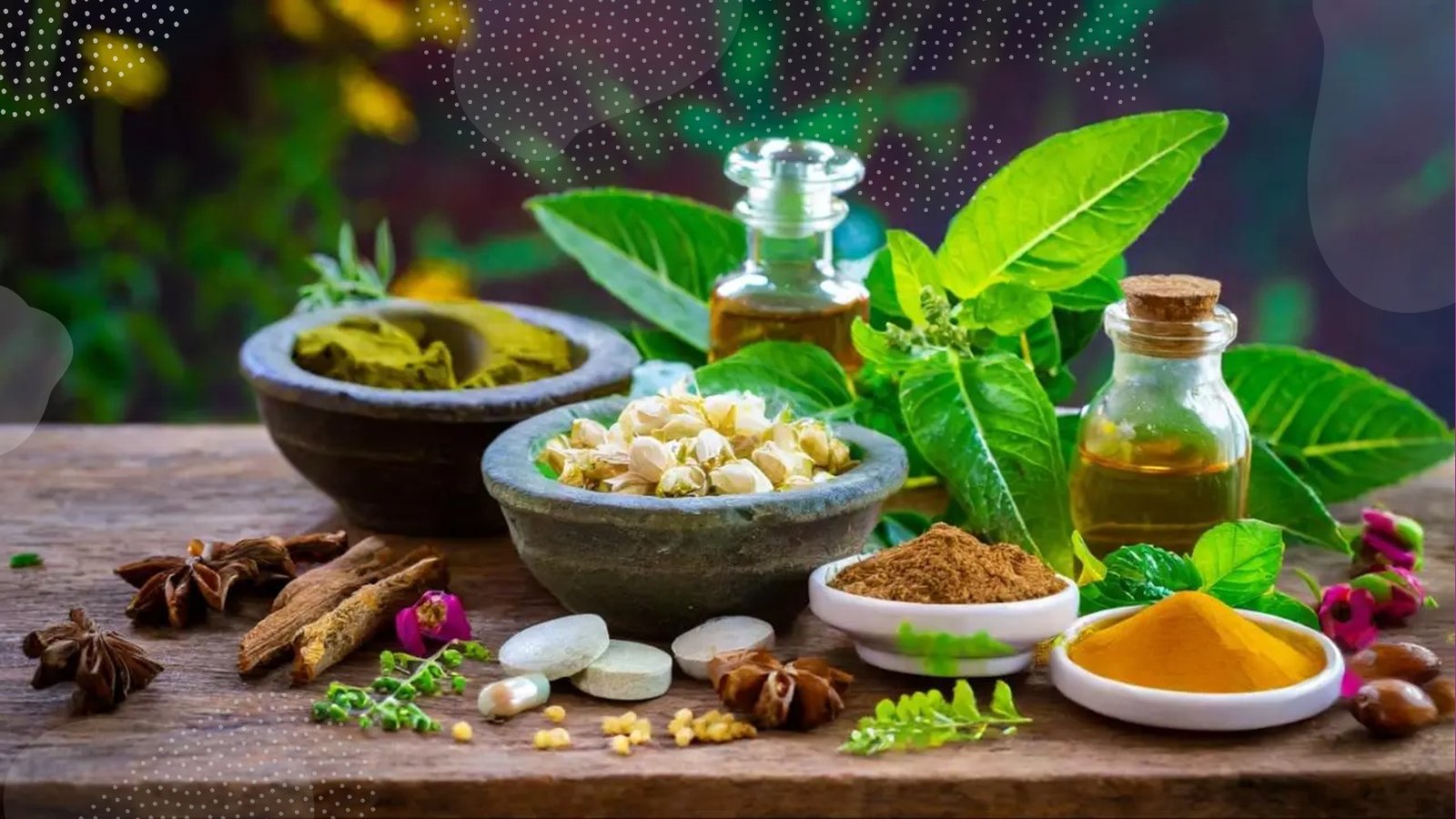The intersection of traditional medical wisdom and contemporary scientific research has provided a fertile ground for understanding holistic approaches to health. Ayurveda, an ancient system of medicine originating from the Indian subcontinent, has offered a sophisticated, natural methodology for enhancing immunity for over 5,000 years. As the global health landscape increasingly recognizes the significance of integrative medicine, the relevance of Ayurvedic immunity boosters has gained traction, prompting both scientific inquiry and practical adoption.
This article aims to provide a comprehensive analysis of Ayurvedic principles concerning immune function, examining the efficacy of herbal formulations, dietary protocols, and lifestyle modifications. Moreover, it contextualizes these ancient methodologies within the framework of contemporary immunological research, offering a nuanced perspective on their relevance and applicability in the modern world.
The Ayurvedic Paradigm of Immunity
Ayurveda conceptualizes health as the harmonious balance of the three doshas—Vata, Pitta, and Kapha—each governing distinct physiological and psychological functions. According to Ayurvedic theory, the robustness of the immune system, or Ojas, is directly influenced by this balance. When the doshas are in equilibrium, Agni (digestive fire) functions optimally, ensuring proper metabolism and detoxification, both of which are crucial to immune resilience.
Unlike allopathic medicine, which often focuses on symptomatic treatment, Ayurveda emphasizes preventative care, reinforcing the body’s intrinsic capacity to defend against pathogens through a multi-faceted approach that includes herbal therapeutics, dietary modifications, and psychophysiological interventions. This approach aligns with the contemporary understanding of immunomodulation, wherein factors such as stress, nutrition, and microbiome health significantly impact immune function.
Scientific Validation of Ayurvedic Immunity Enhancers
Although Ayurveda has long extolled the virtues of natural immune-boosting agents, recent scientific investigations have provided empirical support for many of these claims. The following subsections explore the immunological mechanisms underlying key Ayurvedic interventions:
1. Immunostimulatory Properties of Ayurvedic Herbs
- Ashwagandha (Withania somnifera): Classified as a Rasayana (rejuvenative), Ashwagandha has demonstrated immunomodulatory properties in clinical studies. Research indicates that its bioactive compounds enhance leukocyte proliferation and regulate cytokine production, crucial for immune homeostasis.
- Tulsi (Ocimum sanctum): Tulsi has been recognized for its adaptogenic and immunoprotective effects. Studies have demonstrated its ability to enhance T-helper cell activity, boost natural killer (NK) cell function, and mitigate oxidative stress, thus fortifying immune defense mechanisms.
- Turmeric (Curcumin): The curcuminoids present in turmeric exert profound anti-inflammatory and immunomodulatory effects. By inhibiting NF-κB signaling pathways, curcumin modulates inflammatory cascades, enhancing macrophage and dendritic cell activity to promote pathogen clearance.
2. Ayurvedic Dietary Protocols and Immune Modulation
Ayurveda advocates for a diet rich in bioactive compounds, prebiotics, and enzymatic cofactors that optimize immune function. Many of these dietary principles align with modern nutritional immunology.
- Ginger (Zingiber officinale): Ayurvedic texts highlight ginger’s immunostimulatory benefits. Scientific research corroborates its ability to reduce pro-inflammatory cytokines, enhance lymphocyte proliferation, and promote antioxidant defense mechanisms.
- Ghee (Clarified Butter): Ayurveda regards ghee as an Ojas-enhancing food, and recent findings suggest that its high concentration of butyric acid plays a pivotal role in regulating gut microbiota, which in turn modulates systemic immune responses.
- Honey: Revered in Ayurveda as both a therapeutic and preventive agent, honey has been found to exert antibacterial and immunostimulatory properties by enhancing macrophage activation and promoting antibody production.
3. Ayurvedic Lifestyle Interventions and Immune Optimization
Beyond pharmacological agents, Ayurveda underscores the importance of lifestyle interventions that regulate stress physiology, a concept corroborated by psychoneuroimmunology.
- Yoga and Pranayama: Scientific literature has extensively documented yoga’s ability to downregulate pro-inflammatory mediators, enhance T-cell function, and improve autonomic nervous system balance, all of which contribute to heightened immune vigilance.
- Meditation and Mindfulness: Chronic stress is a well-documented immunosuppressant. Meditation has been shown to modulate hypothalamic-pituitary-adrenal (HPA) axis activity, reducing cortisol levels and improving immune resilience.
- Circadian Rhythms and Sleep: Ayurveda emphasizes Dinacharya (daily routines) as fundamental to health. Scientific research aligns with this perspective, demonstrating that circadian misalignment and sleep deprivation compromise adaptive immune responses, increasing susceptibility to infections.
Challenges in the Integration of Ayurvedic Immunology
Despite its holistic and efficacious principles, Ayurveda faces certain challenges in its assimilation into mainstream healthcare paradigms:
- Accessibility of Authentic Herbal Resources: Many Ayurvedic herbs, such as Shatavari, Brahmi, and Guduchi, are not readily available in global markets. The increasing demand for Ayurvedic formulations necessitates stringent quality control measures to mitigate the risks of adulteration and contamination.
- Long-Term Adherence to Ayurvedic Protocols: Unlike rapid pharmacological interventions, Ayurveda demands consistency and long-term compliance to achieve sustained immune enhancement. This necessitates a shift in patient mindset from a disease-centric model to one of preventative healthcare.
- Bridging the Scientific Evidence Gap: While modern research has validated several Ayurvedic principles, many remain under-explored. Expanding clinical trials and molecular investigations will facilitate Ayurveda’s greater acceptance within the biomedical community.
- Cultural and Dietary Variability: Ayurvedic dietary guidelines are predominantly rooted in Indian gastronomy. Adapting these principles to diverse cultural contexts requires a universal framework that retains core immunological benefits while ensuring accessibility.
Conclusion
Ayurveda presents a sophisticated and systematic approach to immunological resilience, integrating herbal therapeutics, nutritional interventions, and psychophysiological balance. This ancient medical science, corroborated increasingly by modern research, offers a sustainable alternative to synthetic immunostimulants, reinforcing the body’s innate capacity to counteract pathogenic threats.
By systematically incorporating Ayurvedic immunity boosters into daily routines, individuals can fortify their physiological defense mechanisms, optimize metabolic processes, and achieve a state of holistic well-being. As scientific inquiry continues to unravel the mechanistic underpinnings of Ayurvedic formulations, the potential for their integration into mainstream immunological practice becomes increasingly evident.
For those seeking a comprehensive and preventative health strategy, Ayurveda provides an unparalleled framework for achieving long-term immune equilibrium. By aligning with these ancient principles while leveraging modern insights, individuals can cultivate resilient immunity, enhanced vitality, and enduring health. The synthesis of age-old wisdom with contemporary research holds the promise of a transformative healthcare paradigm, one that harmonizes tradition with the rigor of empirical science.




